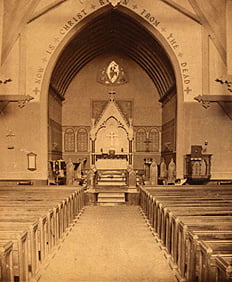 How many times have you heard someone say, "I'm spiritual but not religious?" Oprah loves to say it on her network. Church folks love to write books about it. It's the #1 excuse in certain parts of our world as to why folks have decided not to come to church anymore.
How many times have you heard someone say, "I'm spiritual but not religious?" Oprah loves to say it on her network. Church folks love to write books about it. It's the #1 excuse in certain parts of our world as to why folks have decided not to come to church anymore.
But for me it's a conversation I often don't like having because I find myself as one who has a religious degree and ordination status from a religious denomination, but I also consider myself a spiritual person. And I feel the debate comes with these assumptions:
I think the book of James has a lot to say on this topic for those of us int he Christian camp, though it's often known as one of the least religious books of the Bible and one preachers rarely plan sermon series on.
James' community had two camps. There were those who said: “We’d better get our theology in order. We need to write more doctrine.”
And there were others who said, “Theology is well and good, but what does it mean? What does faith look like?”
James answers in chapter 1, verse 26 these clamorings: “If any think they are religious, and do not bridle their tongues but deceive their hearts, their religion is worthless. Religion that is pure and undefiled before God, the Father, is this: to care for orphans and widows in their distress, and to keep oneself unstained by the world.”
Simply put: religion for religion’s sake is worthless. If we keep up tradition, for tradition’s  sake, it’s worthless.
sake, it’s worthless.
If we conduct church business in a particular way because it how they did it back in 1995, it’s worthless.
If we maintain our buildings for the sake of maintaining our buildings, then it’s worthless.
It’s not that traditions are bad or religious structures like church buildings are evil. But, rather, James exhorts us, that if we do not consider WHY we do certain things, then we really shouldn’t call this faith.
I'm glad to have James as teacher here because he reminds me that mindless choices we make in the name of cultural religion are not always full of the gospel. For example, why do many churches do these same things year after year:
Because if we believe that the Spirit is always moving in our world, then what God wanted from us and what we spent so much time building in 1980 might not be what God wants from us in 2012, right?
When it all boils down to it—James begs the church of his day and the church of our day to ask ourselves—are we spinning our wheels on building up what matters or are we just spinning our wheels?
Is our religion that of caring for orphans and widows and others in need of compassionate service? Or is our religion that of building bigger buildings and structures that leave a mark of “we were once here?”
Then maybe we need to re-think our spiritual formation and our religious practice.
Anytime I do a funeral service, I find myself repeating a phrase of exhortation to the mourners. It's a series of question that gets to heart of life's meaning.
“When you and I die, only one thing matters: not how much money we have, not how many flowers decorate the alter, not how many people attend, not how many groups or societies we belonged to—only one thing—is it well with our souls? Are our lives in harmony with God? What will profit a man or woman if he or she gains the whole world and loses their own soul?”
So, this brings me to the place where I really want to say to those people who tell them they are too spiritual for church—I understand. By all means save your soul if it is the church is taking it from you. I realize the church can be a messed up place. Institutions are like this. Sometimes we make good decisions that bring us together and other times we miss the mark painfully. God is not always in all communities claiming to be church.
But, also it is ok to be both spiritual and religious. Many of the traditions of the church are so wise. We have beautiful music. We have rich liturgy. We have much to offer those who are seeking faith in our worship and community life.
But, is the church perfect? Has it made way more mistakes in its formation, declarations, and judgments than it has for the good of the world? Probably.
Yet, I won’t leave the church even if I'm not the pastor in charge. My faith is communal. It’s communal with the saints and sinners who have gone before me. It’s communal with the saints and sinners who fill the pages of my life right now. I believe the Christian journey, like that of the Jewish journey or the Muslim journey, is one at requires a lot more “we” than “I.” I need the church’s religion for my spirituality to have a home.
Thank goodness that this popular debate is not a new debate at all. It's been going on for centuries, and we still have the wise words of teachers like James to spur us on our way.